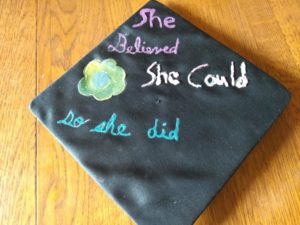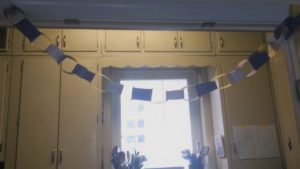Last Friday, I got the opportunity to see the film “The Power of Forgiveness,” which is directed by Martin Doblmeier, in my philosophy class. Afterwards, I got to sit in on a Q & A with the director himself.
In the film, Doblmeier explores the idea of forgiveness in communities that have been wronged grievously, including Catholics and Protestants in Northern Ireland, the Amish in Pennsylvania, the Jews, those in the Columbine shooting, and some others.
The documentary did not try to educate its audience on how to forgive. Quite the contrary, it acknowledged that everyone, every community has a different approach to forgiveness. For the Amish, forgiveness is almost automatic, something that they are taught to do all the time. They even applied this concept to the school shooting that happened in their very own backyard, so to speak. Some members talked about how it was a little more difficult than usual, but still they forgave somewhat out of habit. That does not mean that they forgot or even became less angry. Oh no. After all, forgiving is not forgetting. It is letting go of the pain.
I am in my early twenties. I don’t think I have enough years of experience and wisdom to forgive everything and everyone.
I do forgive my roommate from my freshman year who hurt me greatly.
I do forgive mean comments that have come my way over the years.
I do not quite forgive James Holmes, the man who opened fire in a movie theater that I have grown up going to.
I do not forgive Hitler, a man who lived and died before I was even a thought, but still instills terror in me.
One of my classmates stood up at the end of the period and asked if forgiveness isn’t a little selfish because it is typically done for your own well-being and not for the good of the one who wronged you.
I can see his point, but I think the opposite of forgiveness is vengeance and letting the wrong destroy your life and is infinitely more selfish. By letting your pain consume you, you are saying that it matters more than everybody else’s pain.
And the truth is: everybody is in pain of some sort. You are not alone, even if struggles vary from person to person. And it very well may be that part of that struggle is forgiving someone. And forgiving is hard. Hard to understand and do.
But I think that forgiveness brings us together and gives us peace, which is, I believe what human beings crave. In the end.

